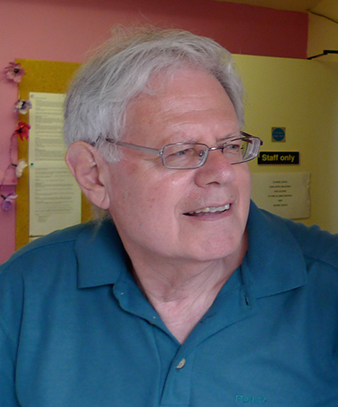Hi! My name is Peter Levin, and I live in Penzance, Cornwall, UK. I set up this website in 2009. In its original form it covered a wide variety of social policy topics: I relaunched it in 2016 and narrowed its focus to health and social care. As a former academic (Social Policy, London School of Economics) I am particularly interested in how ‘the system’ works: how decisions are taken and put into effect, and their impact on patients.
As a patient nowadays – I have been an inpatient more than once at Cornwall’s main acute hospital at Treliske and am familiar with the ways of my local GP practice in Penzance, where I seem to have acquired the status of an ‘older person living with frailty’ – and having been a subscriber to Which? since 1962, I am always on the lookout for ways in which patients and potential patients can contribute constructively to the running of the NHS.
I reject the notion that patients should know their place and show grateful deference towards medical and allied professionals: we are now in the era of a society that includes both savvy, questioning, internet-searching consumers and people who are digitally deprived, left behind by 21st century technology. I do see the relationship between professionals and all patients as needing to be an alliance, and one that is especially necessary today when the NHS has been so badly ground down over the years.
I’ve had a varied career so far: I studied physics at university and gained a PhD for my research into the oxidation of magnesium, but living in the new town of Harlow for four years from 1960 set me off on a career of teaching and researching social policy at the LSE.
For more than fifty years now my main research interest has been government planning and policy-making. My books include Government and the Planning Process (Allen & Unwin, 1976), on the planning of new towns and town expansion schemes in the 1960s, and Making Social Policy: The Mechanisms of Government and Politics and How to Investigate Them (Open University Press, 1997).
Since my move to Cornwall in 2005, just before I finally retired from the LSE, I have poked my nose into many aspects of health and social care planning and provision in the Duchy. While I have found quite a lot to criticize – constructively, I hope – and certainly irritated some people, I have met many others with open minds, happy to talk freely about the issues they face. Mostly I have been impressed by their calibre and commitment.
The National Health Service is a strongly hierarchical organization, so researching into local conditions has inevitably led me into questioning what happens higher up the line. My enquiry into ‘Delayed transfers of care’ led me to the conclusion that NHS England’s guidance on the subject is – shockingly – both incoherent and impractical, and a reflection of a poorly managed bureaucracy. My recent and ongoing work on the relationship between acute hospital care and social care seems to be reinforcing that conclusion.
Here in Cornwall, I am on the committee of West Cornwall HealthWatch, a voluntary, independent campaigning health watchdog that has been serving West Cornwall since 1997. It monitors developments and campaigns to safeguard and improve services provided in West Cornwall by the National Health Service. I am hugely grateful to my fellow committee members for their encouragement and their local knowledge, on which I draw heavily.
All posts on this website are my own responsibility, and the views expressed are mine alone. I do not speak for West Cornwall HealthWatch. To contact me about any of the subjects that I write about, including your own stories of how the NHS has treated you and yours, please send an email to me at this address: peter.levin/@/spr4cornwall.net (without the forward slashes, of course). I’ll be glad to hear from you.
Penzance, June 2024

PS I also write on Higher Education. Please visit guides4students.net
All the original writing on this site is copyright Peter Levin under the Creative Commons Attribution-Share Alike License. Which means, in brief, you can do with it what you will as long as there is an acknowledgement and no enclosure of works built upon it.